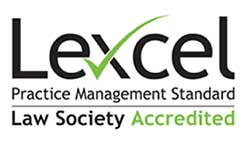In September 2020, a major leak known as the ‘FinCEN Files’ exposed the UK’s significant role in facilitating global corruption and money laundering. It showed that Western banks were complicit in moving money around the globe for oligarchs, terrorists, drug lords, and criminal gangs. The following month, the UK Treasury Committee opened an inquiry into the effectiveness of both anti-money laundering systems and related sanctions.
Reacting to the revelations in their immediate aftermath, the head of the UK Treasury Committee, Mel Stride, said he was “deeply troubled” by the revelations and had alerted HMRC, the Financial Conduct Authority (FCA), and the Home Office.
“The Treasury Committee wants to know whether Ministers, HMRC and the FCA are on top of this”
Mr Stride said the new inquiry would “review what progress has been made in combating economic crime” since a previous inquiry was held during the term of the last U.K. Parliament.
“The current Committee will now examine what progress supervisors, law enforcement and the Government has made in these areas.
“It’s important that the relevant bodies are held to account and scrutinised effectively to ensure that the UK is a clean place to do business and that consumers are protected from economic crime.”
Unfortunately, it seems that the Coronavirus pandemic put the inquiry on pause. However, in April 2021, the FCA announced it was pursuing a criminal prosecution against NatWest for alleged money-laundering offences. This will be the first time the regulator has taken a bank to Court.
With so much focus on anti-money laundering, those in regulated sectors, such as lawyers, insurance agents, accountants, brokers, and estate agents, must be aware of their anti-money laundering reporting obligations and fully comply with them.
The anti-money laundering reporting offences are as follows:
Failure to disclose
Section 330 of the Proceeds of Crime Act 2002 (POCA) states that an offence is committed if a person knows or suspects, or has reasonable grounds for knowing or suspecting, that another person is engaged in an offence under sections 327 to 329 of POCA and fails to report it to either the National Crime Agency or their organisation’s Money Laundering Reporting Officer.
Nominated officers’ failure to disclose
If a Money Laundering Reporting Officer (MLRO) fails to disclose any information given to them within a reasonable time, they are committing an offence under POCA, section 331. However, a defence is available if the MLRO has a reasonable excuse for not making a disclosure. At the time of writing, no case law defines what constitutes a “reasonable excuse”; however, I feel fairly confident in saying that ‘being too busy’ or ‘forgetting’ will not suffice. The reason would have to be significant, such as the MLRO being taken severely ill and left unable to delegate their duties immediately after the information was reported to them.
Tipping off
The offence of tipping off under POCA section 333A occurs when a person working with a client either deliberately or inadvertently alerts them that their activities have been reported to the MLRO or the National Crime Agency. This offence aims to prevent those who may be laundering money from hiding or destroying potential evidence of illicit activities.
Prejudicing the investigation
Section 342 of POCA states an offence is committed if a person knows or suspects that a money-laundering investigation has or is about to be, commenced in respect of another and he makes a material disclosure to any other person which is likely to prejudice the investigation, or interferes with relevant material. This offence applies to regulated and non-regulated people.
Lack of clarity surrounding the regulations
Because there is very little case law around money laundering reporting offences, for example, ‘reasonable grounds for suspecting’, guidance as to the definition of certain terms relating to the above offences is vague. Therefore, it is imperative for all organisations in the regulated sector to:
- Ensure there is adequate training and communication around anti-money laundering compliance; and
- Consult with a money laundering defence lawyer if you have any doubts regarding your reporting obligations.
We will keep you updated on developments concerning the NatWest prosecution and any further changes regarding money laundering offences.



